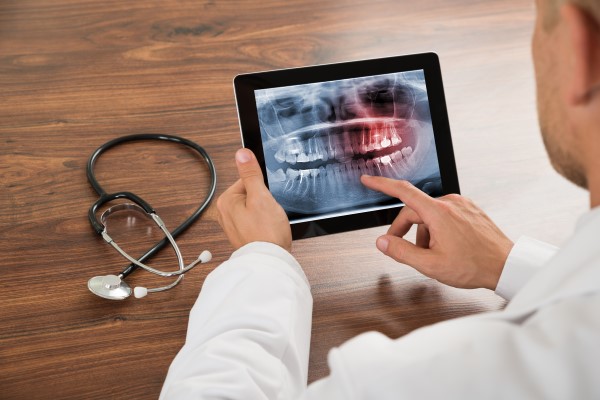



Patients often wonder what occurs during an oral cancer screening. Read on to learn more about this essential part of a dental checkup. Dentists are trained to provide visual oral cancer screenings. Depending on someone’s lifestyle choices or family history, the dentist may suggest an oral cancer screening. These visual exams take just a few minutes to perform and can be life-saving. Early diagnosis is critical in the fight against this deadly illness, and a simple screening may be reassuring if a patient is worried about oral cancer.
An overview of oral cancer screening
Patients should request an oral cancer screening at every dental visit even if they are not currently experiencing any symptoms. Dentists will generally look for oral cancer symptoms and indications during a routine visit, but specifically asking for the screening is a good idea. Oral cancer screenings should be done before the onset of any symptoms.
A visual inspection and a physical examination of the gums, palate, soft tissue, and tongue are the main parts of an oral cancer screening. Oral cancer screenings also include examinations of the face, neck, lips, and inside of the nose. All oral appliances, such as dentures and retainers, must be taken off before the test. This helps to reveal any areas of the mouth that may be susceptible to oral cancer.
The dentist will start by looking for asymmetries. They will check for swelling, tumors, white spots, sores, rough patches, and other anomalies around the oral cavity. The dentist will examine the interior of the nose and mouth using a tiny light and mirror. The dentist will also check the back of the throat using a tongue depressor.
Physical examination
The dentist will feel the head and cheeks around the jaw, under the chin, and within the oral cavity during the physical exam. They will be on the lookout for anything odd, such as nodules or masses, and they may recommend additional investigation. A typical sign of oral cancer is the difficulty of moving usually movable tissue, which is often overlooked. When pressure is applied to these areas, they typically produce discomfort. Not all malignant spots, however, will cause discomfort.
The dentist may use certain technological devices, aside from the visual and physical examination. Oral cancer screening equipment like the VELscope may aid dentists in detecting precancerous cells that are not visually apparent. This gadget emits a gentle blue light into the mouth. Normal tissue will glow, while precancerous or cancerous areas will be black.
If the dentist discovers an anomaly during an oral cancer screening, they will collect a sample of the cells and forward it to a lab for a biopsy. Oral cancer tests may alert dentists to potential problem areas, but diagnosing the illness is a far more complex process.
In summary
The importance of early diagnosis of oral cancer in saving lives cannot be overstated. Suppose you have a family history of oral cancer or engage in specific behaviors like smoking or drinking too much alcohol. In that case, you may be at a greater risk of getting the disease. Patients who are at risk should undergo screening at least three to four times per year.
Request an appointment here: http://www.drmccawley.com or call James R McCawley DDS at (615) 526-2497 for an appointment in our Murfreesboro office.
Check out what others are saying about our dental services on Yelp: Oral Cancer in Murfreesboro, TN.
Recent Posts
Thinking about getting an oral cancer sceening? Oral cancer screenings are a very important part of general dental care as they ensure the health of patient's oral cavity. They involve a few steps that are typically painless. Understanding the process of an oral cancer screening can be helpful for patients who are not sure what…
Wondering what the signs of oral cancer are? General dentists are specifically trained in performing oral cancer screenings and thus know exactly what to look for. Dental patients can also check for signs in between screenings.Learning how general dentists perform oral cancer screenings will help dental patients know what to expect when undergoing this important…
Gum disease is not a condition you should ever ignore. At the first signs of trouble, you should talk to your dentist about how to treat these issues and restore your gums to good health. While the dentist can recommend in-office treatment, there are also things you can do on your own. Along with good…
Want to understand what gum disease can do to one’s mouth? Once someone is diagnosed with this oral disease, there are many ways it can cause them to experience bad overall dental health. Patients who are diagnosed can ask their general dentist any specific questions they have about preventing and treating gum disease, as prevention…


